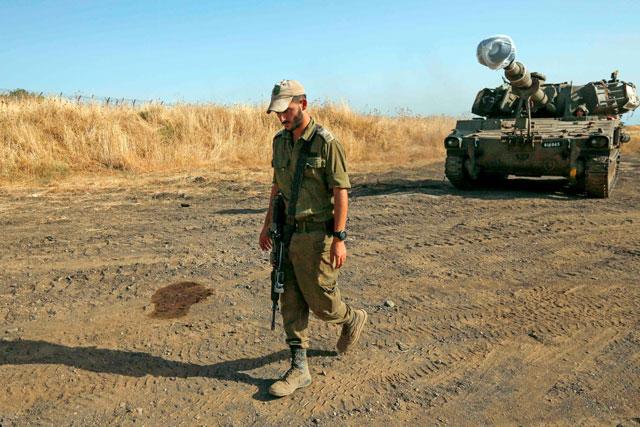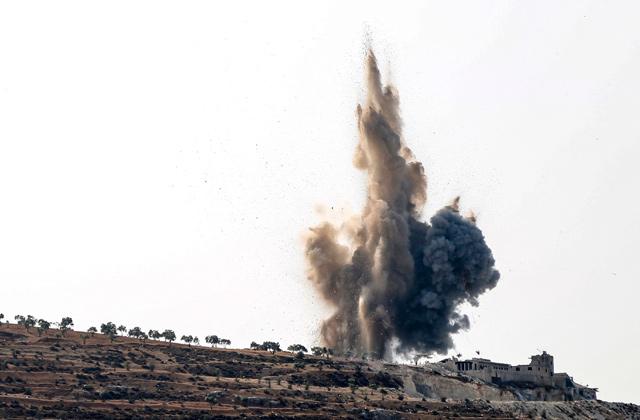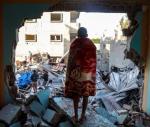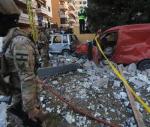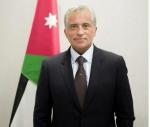You are here
Major Israeli raids hit 'Iranian' targets in Syria after rocket fire
By AFP - May 10,2018 - Last updated at May 10,2018
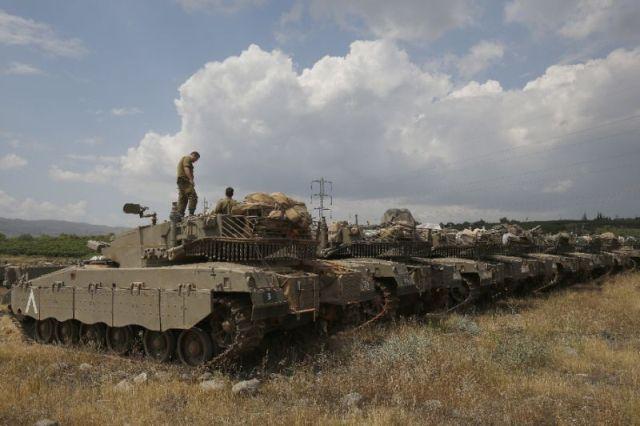
JERUSALEM- Israel's army said Thursday it had carried out widespread raids against Iranian targets in Syria overnight after rocket fire towards its forces which it blamed on Iran, marking a sharp escalation between the two enemies.
The incident came after weeks of rising tensions and followed US President Donald Trump's decision to withdraw from a key 2015 Iran nuclear deal on Tuesday, a move Israel had long advocated.
The raids were one of the largest Israeli military operations in recent years and the biggest such assault on Iranian targets, the military said.
"We hit nearly all the Iranian infrastructure in Syria," Defence Minister Avigdor Lieberman told a security conference on Thursday morning.
"They need to remember the saying that if it rains on us, it'll storm on them. I hope we've finished this episode and everyone understood."
Israel carried out the raids after it said around 20 rockets, either Fajr or Grad type, were fired from Syria at its forces in the occupied Golan Heights at around midnight.
It blamed the rocket fire on Iran's Al-Quds force, adding that Israel's anti-missile system intercepted four of the projectiles while the rest did not land in its territory.
No Israelis were wounded.
If confirmed, the incident would be the first such rocket fire by Iranian forces in Syria towards Israel.
"We know that comes from the al-Quds force," army spokesman lieutenant-colonel Jonathan Conricus said, referring to the special forces unit affiliated with Iran's Revolutionary Guard.
The Syrian Observatory for Human Rights monitoring group said dozens of rockets were fired from Syria toward the Israeli-occupied Golan, but did not confirm they were fired by Iranian forces.
It alleged the rockets followed a "first Israeli bombardment on the town of Baath" in Quneitra province.
A senior pro-regime military source in Syria confirmed the salvo of rockets, but insisted Israel had fired first.
'Not looking to escalate'
Later, in the early hours of the morning, explosions were heard in Damascus, while live images were broadcast on television showing projectiles above the Syrian capital and several missiles destroyed by Syrian anti-aircraft systems.
Syrian state media reported that Israeli missile strikes had hit military bases as well as an arms depot and a military radar installation, without specifying the locations.
The official SANA news agency added that "dozens of missiles were shot down by anti-aircraft systems in Syrian airspace", saying a number of missiles had reached their targets.
Israel's military later confirmed it had carried out the raids, saying dozens of Iranian military targets had been struck and all of its aircraft had returned safely.
Conricus said intelligence, logistics, storage and vehicles as well as the origin of the rockets were targeted.
Syrian air defences, which fired dozens of times on Israeli forces, were also targeted, he said.
There had been no comment from Iranian officials.
Lieberman called the rocket fire "a new phase".
"We don't want an escalation, but won't let anyone attack us or build an infrastructure to attack us in the future," he said.
"We're facing a new reality. The Iranian attempt to bring anti-aircraft systems to our borders and close our skies is intolerable and unacceptable."
An Israeli military statement said "this Iranian aggression is another proof of the intentions behind the establishment of the Iranian regime in Syria and the threat it poses to Israel and regional stability."
It added that it "will not allow the Iranian threat to establish itself in Syria. The Syrian regime will be held accountable for everything happening in its territory."
French President Emmanuel Macron called Thursday for "de-escalation" between Israel and Iran, adding that he would discuss the issue later in the day with German chancellor Angela Merkel.
'Right to protect self'
Israel has long warned that it will not accept Iran entrenching itself militarily in neighbouring Syria, where Tehran is supporting President Bashar al-Assad's regime in the country's seven-year civil war.
Israel has been blamed for a series of recent strikes inside Syria that have killed Iranians, though it did not acknowledge those raids.
It does acknowledge carrying out dozens of raids in Syria to stop what it says are advanced arms deliveries to Iran-backed Hezbollah, another key foe of Israel.
Israel had been preparing itself for weeks for possible Iranian retaliation.
Trump's withdrawal from the nuclear deal has added to tensions and led to a new level of uncertainty over how Iran will respond.
On Wednesday, Israeli Prime Minister Benjamin Netanyahu held talks in Moscow with Russian President Vladimir Putin, whose country has provided massive military and diplomatic backing to Assad's regime.
"I told President Putin that it is the right of every state, certainly the right of Israel, to take the necessary steps in order to protect itself from this aggression," Netanyahu said in a statement, referring to Iran's presence in Syria.
Netanyahu and Putin have held a series of meetings and telephone conversations in recent months, particularly regarding Syria.
The two countries have established a hotline to avoid accidental clashes in the war-torn country.
In February, Israel accused Iranian forces at the T-4 base in central Syria of sending a drone into Israeli territory.
After targeting Iranian units in Syria in retaliation, an Israel F-16 was shot down by Syrian anti-aircraft fire in one of the conflict's most notable escalations.
Israel then carried out what it called "large-scale" raids on Syrian air defence systems and Iranian targets, which reportedly included T-4.
Israel later said the drone had been armed.
Related Articles
BEIRUT — Israel carried out air strikes in Syria on Sunday in response to rare rocket fire from the neighbouring country, its military said,
DAMASCUS — Israel carried out air strikes in Syria near the government-held city of Homs, Syrian state media reported on Sunday, and the Isr
DAMASCUS — An Israeli missile strike wounded two Syrian soldiers near Damascus on Saturday, the official SANA news agency reported after exp


